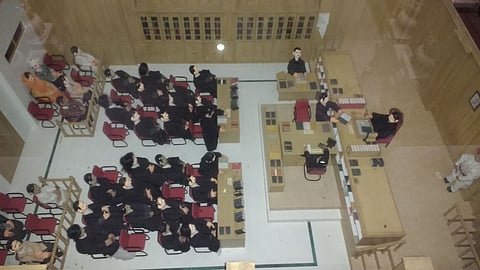
- News
- Columns
- Interviews
- Law Firms
- Apprentice Lawyer
- Legal Jobs
- हिंदी
- ಕನ್ನಡ

Comments by judges on the dress or social background of government officials asked to appear in courts should be avoided, a draft standard operating procedure (SOP) submitted by the Central government before the Supreme Court said